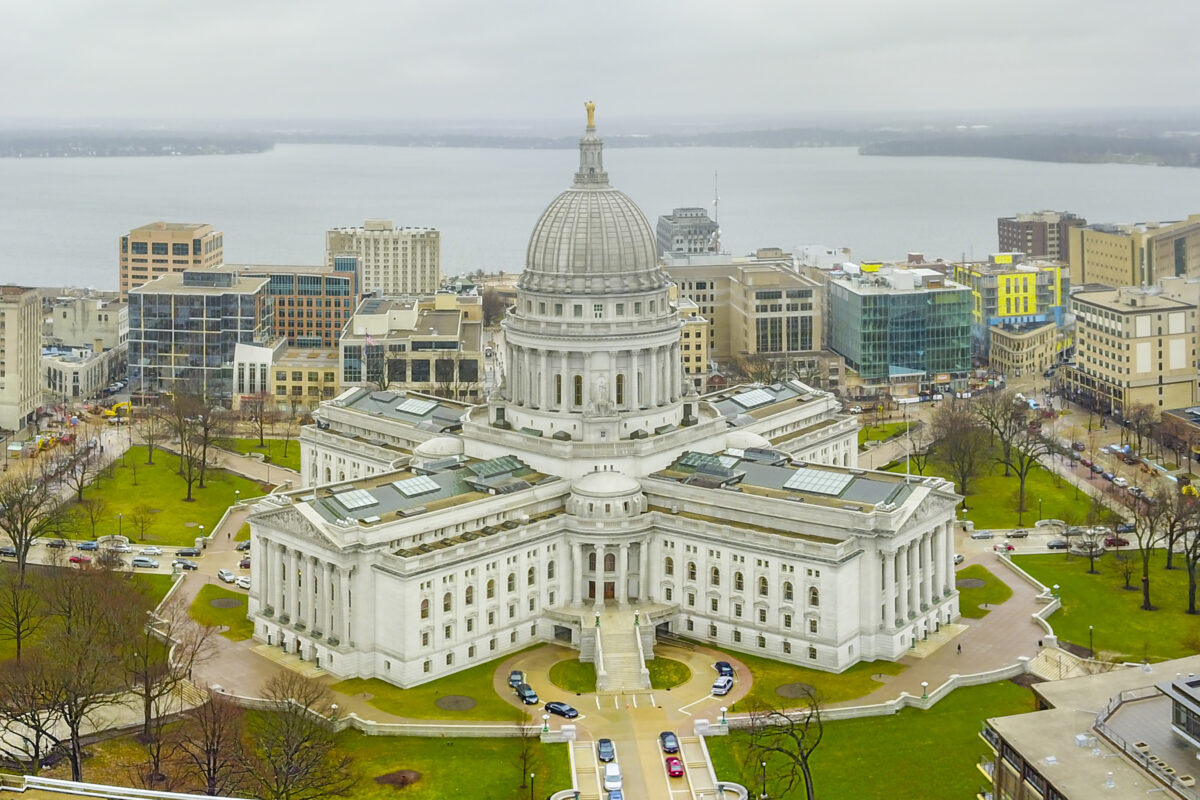These citizens join a growing coalition of Wisconsin Legislators, farmers, businesses, and energy leaders calling on the Legislature to act
MADISON, Wis. — Over 1,000 citizens across the state of Wisconsin have demanded the legislature legalize community solar, a type of small-scale solar that allows households and businesses to subscribe and save money. These constituents, who hail from 66 Wisconsin counties, either signed a petition or contacted their local lawmaker to demand action is taken on community solar legislation (Senate Bill 226 and Assembly Bill 258) that’s been stuck in committee without plans for a public hearing.
According to the petition, “Thousands of American farmers across 22 states are earning billions of dollars (hundreds of thousands per project) by putting their unused land to work generating solar energy for their neighbors….[while] local communities get a cheaper energy option. But because of government red tape, community solar is still illegal in Wisconsin… legalize community solar in Wisconsin and protect our family farmers.”
This growing group of grassroots advocates is part of a broader movement that has vocalized support for community solar in Wisconsin. The Wisconsin Community Solar Economic Alliance is a group of Wisconsin businesses and organizations from across the state who believe community solar can give consumers and businesses more energy choice, lower customers bills, and increase private investment in local communities. Notable alliance members include the Farm Bureau, Wisconsin Grocers Association, Kohler, Organic Valley, Advocate Aurora Health, and the Alliance for Wisconsin Retailers who represent Best Buy, Kohl’s, Macy’s, Home Depot, Target, Associated Builders and Contractors, Conservative Energy Network, RENEW Wisconsin, and other energy leaders.
“The groundswell of public support we’re seeing for community solar in Wisconsin is unlike anything we’ve seen,” said Matthew Hargarten, Vice President of Campaigns for Coalition for Community Solar Access. “No other energy issue in the state has more public support and momentum than community solar. It’s unfathomable why the legislature wouldn’t at least debate the issue in public considering the popularity of the issue and the fact that Wisconsin families are being squeezed by soaring utility bills. It makes you wonder: Who is really calling the shots on this issue in Madison?”
Senate Bill 226 and Assembly Bill 258 would legalize community solar projects and allow community members to subscribe to the energy and receive credit on their utility bills for their share of the power produced. This legislation would:
- Provide homeowners, renters, and businesses equal access to solar energy, regardless of whether they’re able to install solar panels on their own home or business
- Generate $2.5 billion in economic activity and 34,700 jobs in Wisconsin, according to a recent study from Forward Analytics
- Help save Wisconsin family farms by giving farmers the opportunity to earn lease payments for small, underutilized portions of their land, while still letting them farm the rest
- Create a competitive marketplace for community solar projects, which are 10-15 times smaller than utility-scale solar projects
- Create strict local control over community solar projects, requiring two-thirds approval by the local municipality before they can proceed
“Community solar has the power to unleash the benefits of locally generated renewable energy in rural communities that have been left out of the conversation for too long,” said Jason Mugnaini, Executive Director of Governmental Relations for the Wisconsin Farm Bureau Federation. “If passed, SB 226 and AB 258 would create an opportunity for farmers to earn a new income stream while keeping a majority of their land in production. Programs allow for local control, create energy independence in the state, and help entire communities lower their energy bills.”
“When we first decided to move forward with solar, I had no idea that the state of Wisconsin did not allow the smaller community-run operations independent of a utility company,” said Karl Klessig, a fifth generation farmer in Manitowoc County. “We know how strong the utility lobbying block is, so it’s not an easy climb up that hill, but I think our state legislature will change it because it makes sense — especially for the smaller operations. I hope the legislators take a look at the bill this year and go ahead and support it.”
###
About Wisconsin Community Solar Economic Alliance:
The Wisconsin Community Solar Economic Alliance is a group of Wisconsin organizations from across the state and all walks of life committed to pushing for a robust and competitive community solar market. For more information, visit https://wi4communitysolar.com/ and follow the group on Twitter.

